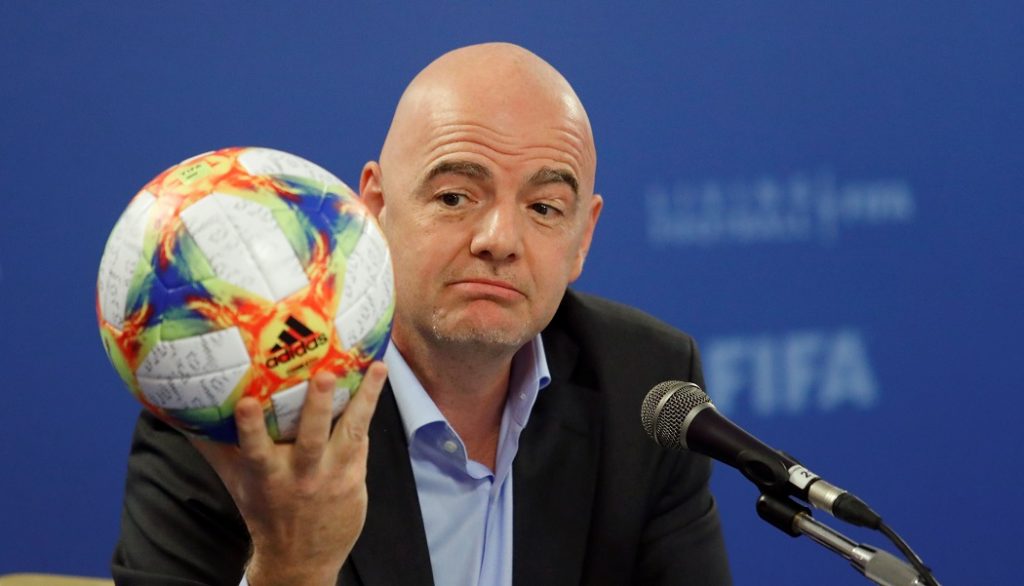Is sport about to eat itself?
May 4, 2023
In this Member Insight piece our Content Manager, Alex Brinton, looks into why sport needs to tread carefully moving forward.
You can’t have too much of a good thing.
Except we all know that you can. Scarcity value is something that is treasured in sport. What makes the Olympic Games, FIFA World Cups, ICC Cricket World Cups, Rugby World Cups and most other big tournaments so special is that they happen only every four years.
It gives us plenty of time to build up to them, creating storylines that fuel media hype and public interest. It gives teams the chance to evolve from one tournament to the next and players know they will only appear in three or four of them at the most, placing significance on each one.
There’s jeopardy, the word we all love in sport, on every match. Why do viewing figures always go up after the group stages of any major tournament? Because it is win or go home, everything a team has been building up for the last four years rests on that game. There is jeopardy in bucket loads.
The Olympics and FIFA World Cups are the most profitable sporting events in the world. For last year’s Qatar World Cup, FIFA earned a record-breaking $7.5bn from commercial deals in the four-year cycle. So naturally, it would make commercial sense to hold these tournaments as often as possible.
FIFA did look into plans for having the World Cup every two years, the project was the brainchild of legendary Arsenal manager Arsène Wenger but it has since been shot down in flames. Nobody, bar FIFA themselves, seemed keen on the idea. Instead, they have used a Trojan horse technique to introduce a tournament expansion. The 2026 edition of the men’s World Cup will be hosted by three countries, 16 cities, four time zones, 48 teams and a reported 80 matches. More games, more commercial opportunities, and no doubt more lucrative broadcast deals.
In Formula One there is a championship every year, so there’s not much chance to shoehorn in another competition, but what they have done is increase the number of races. The F1 calendar has been expanding for years. This season will see the cars race on 23 different weekends and next year this is projected to increase again to either 24 or 25.
More races means more money for the sport. Each country or city which hosts a Formula One Grand Prix has to pay between a reported $15 million (Monaco) and $55 million (Qatar). But the increase in races means that the importance of each race as an individual event is decreased because there are more points on offer.
I am not suggesting that we go back to the seven races for the first F1 World Championship in 1950, but the more races the smaller the chance we have that the World Championship is still up for grabs going into the final race.
In the past ten years it has only come down to the final day on three occasions. We all remember the final race of the 2021 championship with Lewis Hamilton and Max Verstappen going head to head – it was some of the best sporting drama that I have ever seen. Why? Because it was all or nothing, win or bust and the viewing numbers were up 29% from the same race the year before. Sport needs these moments to grow and produce drama.
The Indian Premier League (IPL) is the commercial jewel in cricket’s crown. Last summer’s media rights deal saw the tournament shoot up and become the second most valuable sports property behind the NFL in price paid per game. It really is a remarkable achievement and you can take nothing away from the BCCI, the tournament’s governing body.
It is the crème de la crème of T20 franchise cricket. But do we really need 74 games? It is not only a lot of games, it is a lot of time. The tournament lasts from March 31 to May 28 – that takes up a fair portion of the international calendar. Would the tournament not be better served having the best players, play the best competition, in front of the best crowds in fewer games. So much more would rest on each game, that word jeopardy pops up again.
The expansion of all these sports properties is not necessarily a bad thing. They are some of the most valuable properties in the world and their balance sheets are some of the strongest. That isn’t going to change if they play a few more matches, but where do we draw the line?
At some point we will be in danger of killing the goose that laid the golden egg.



